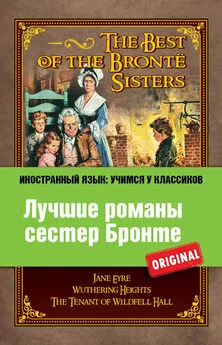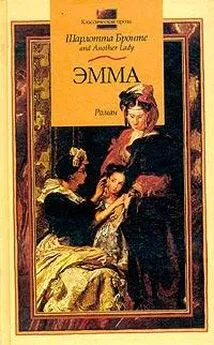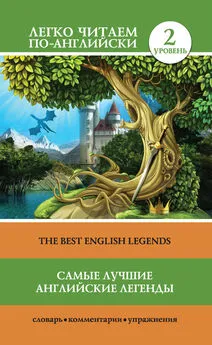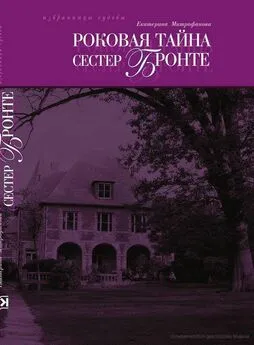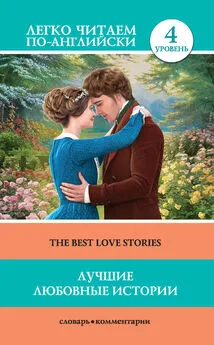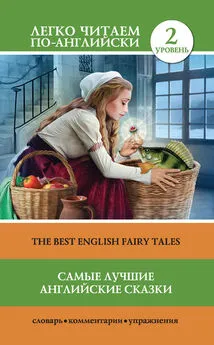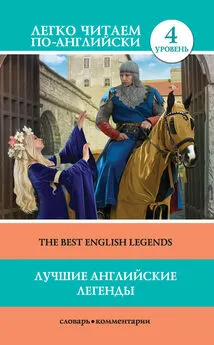Шарлотта Бронте - Лучшие романы сестер Бронте / The best of the Brontë sisters
- Название:Лучшие романы сестер Бронте / The best of the Brontë sisters
- Автор:
- Жанр:
- Издательство:Литагент «Эксмо»334eb225-f845-102a-9d2a-1f07c3bd69d8
- Год:2013
- Город:Москва
- ISBN:978-5-699-61892-7
- Рейтинг:
- Избранное:Добавить в избранное
-
Отзывы:
-
Ваша оценка:
Шарлотта Бронте - Лучшие романы сестер Бронте / The best of the Brontë sisters краткое содержание
«Иностранный язык: учимся у классиков» – это только оригинальные тексты лучших произведений мировой литературы. Эти книги станут эффективным и увлекательным пособием для изучающих иностранный язык на хорошем «продолжающем» и «продвинутом» уровне. Они помогут эффективно расширить словарный запас, подскажут, где и как правильно употреблять устойчивые выражения и грамматические конструкции, просто подарят радость от чтения. В конце книги дана краткая информация о культуроведческих, страноведческих, исторических и географических реалиях описываемого периода, которая поможет лучше ориентироваться в тексте произведения.
Серия «Иностранный язык: учимся у классиков» адресована широкому кругу читателей, хорошо владеющих английским языком и стремящихся к его совершенствованию.
Лучшие романы сестер Бронте / The best of the Brontë sisters - читать онлайн бесплатно ознакомительный отрывок
Интервал:
Закладка:
Here I was transgressing again; and this time I was made sensible of it by a sudden dig in the ribs, from the elbow of my pert brother. For the present, I could only resent the insult by pressing my foot upon his toes, deferring further vengeance till we got out of church.
Now, Halford, before I close this letter, I’ll tell you who Eliza Millward was: she was the vicar’s younger daughter, and a very engaging little creature, for whom I felt no small degree of partiality; – and she knew it, though I had never come to any direct explanation, and had no definite intention of so doing, for my mother, who maintained there was no one good enough for me within twenty miles round, could not bear the thoughts of my marrying that insignificant little thing, who, in addition to her numerous other disqualifications, had not twenty pounds to call her own. Eliza’s figure was at once slight and plump, her face small, and nearly as round as my sister’s, – complexion, something similar to hers, but more delicate and less decidedly blooming, – nose, retroussé, – features, generally irregular; and, altogether, she was rather charming than pretty. But her eyes – I must not forget those remarkable features, for therein her chief attraction lay – in outward aspect at least; – they were long and narrow in shape, the irids black, or very dark brown, the expression various, and ever changing, but always either preternaturally – I had almost said diabolically – wicked, or irresistibly bewitching – often both. Her voice was gentle and childish, her tread light and soft as that of a cat: – but her manners more frequently resembled those of a pretty playful kitten, that is now pert and roguish, now timid and demure, according to its own sweet will.
Her sister, Mary, was several years older, several inches taller, and of a larger, coarser build – a plain, quiet, sensible girl, who had patiently nursed their mother, through her last long, tedious illness, and been the housekeeper, and family drudge, from thence to the present time. She was trusted and valued by her father, loved and courted by all dogs, cats, children, and poor people, and slighted and neglected by everybody else.
The Reverend Michael Millward himself was a tall, ponderous elderly gentleman, who placed a shovel hat above his large, square, massive-featured face, carried a stout walking-stick in his hand, and incased his still powerful limbs in knee-breeches and gaiters, – or black silk stockings on state occasions. He was a man of fixed principles, strong prejudices, and regular habits, intolerant of dissent in any shape, acting under a firm conviction that his opinions were always right, and whoever differed from them must be either most deplorably ignorant, or wilfully blind.
In childhood, I had always been accustomed to regard him with a feeling of reverential awe – but lately, even now, surmounted, for, though he had a fatherly kindness for the well-behaved, he was a strict disciplinarian, and had often sternly reproved our juvenile failings and peccadilloes [175]; and moreover, in those days, whenever he called upon our parents, we had to stand up before him, and say our catechism, or repeat, ‘How doth the little busy bee,’ or some other hymn, or – worse than all – be questioned about his last text, and the heads of the discourse, which we never could remember. Sometimes, the worthy gentleman would reprove my mother for being over-indulgent to her sons, with a reference to old Eli, or David and Absalom, which was particularly galling to her feelings; and, very highly as she respected him, and all his sayings, I once heard her exclaim, ‘I wish to goodness he had a son himself! He wouldn’t be so ready with his advice to other people then; – he’d see what it is to have a couple of boys to keep in order.’
He had a laudable care for his own bodily health – kept very early hours, regularly took a walk before breakfast, was vastly particular about warm and dry clothing, had never been known to preach a sermon without previously swallowing a raw egg – albeit he was gifted with good lungs and a powerful voice, – and was, generally, extremely particular about what he ate and drank, though by no means abstemious, and having a mode of dietary peculiar to himself, – being a great despiser of tea and such slops, and a patron of malt liquors, bacon and eggs, ham, hung beef [176], and other strong meats, which agreed well enough with his digestive organs, and therefore were maintained by him to be good and wholesome for everybody, and confidently recommended to the most delicate convalescents or dyspeptics, who, if they failed to derive the promised benefit from his prescriptions, were told it was because they had not persevered, and if they complained of inconvenient results therefrom, were assured it was all fancy.
I will just touch upon two other persons whom I have mentioned, and then bring this long letter to a close. These are Mrs. Wilson and her daughter. The former was the widow of a substantial farmer, a narrow-minded, tattling old gossip, whose character is not worth describing. She had two sons, Robert, a rough countrified farmer, and Richard, a retiring, studious young man, who was studying the classics with the vicar’s assistance, preparing for college, with a view to enter the church.
Their sister Jane was a young lady of some talents, and more ambition. She had, at her own desire, received a regular boarding-school education, superior to what any member of the family had obtained before. She had taken the polish well, acquired considerable elegance of manners, quite lost her provincial accent, and could boast of more accomplishments than the vicar’s daughters. She was considered a beauty besides; but never for a moment could she number me amongst her admirers. She was about six and twenty, rather tall and very slender, her hair was neither chestnut nor auburn, but a most decided bright, light red; her complexion was remarkably fair and brilliant, her head small, neck long, chin well turned, but very short, lips thin and red, eyes clear hazel, quick, and penetrating, but entirely destitute of poetry or feeling. She had, or might have had, many suitors in her own rank of life, but scornfully repulsed or rejected them all; for none but a gentleman could please her refined taste, and none but a rich one could satisfy her soaring ambition. One gentleman there was, from whom she had lately received some rather pointed attentions, and upon whose heart, name, and fortune, it was whispered, she had serious designs. This was Mr. Lawrence, the young squire, whose family had formerly occupied Wildfell Hall, but had deserted it, some fifteen years ago, for a more modern and commodious mansion in the neighbouring parish.
Now, Halford, I bid you adieu for the present. This is the first instalment of my debt. If the coin suits you, tell me so, and I’ll send you the rest at my leisure: if you would rather remain my creditor than stuff your purse with such ungainly, heavy pieces, – tell me still, and I’ll pardon your bad taste, and willingly keep the treasure to myself.
Yours immutably, Gilbert Markham.
Chapter II
I perceive, with joy, my most valued friend, that the cloud of your displeasure has passed away; the light of your countenance blesses me once more, and you desire the continuation of my story: therefore, without more ado, you shall have it.
I think the day I last mentioned was a certain Sunday, the latest in the October of 1827. On the following Tuesday I was out with my dog and gun, in pursuit of such game as I could find within the territory of Linden-Car; but finding none at all, I turned my arms against the hawks and carrion crows, whose depredations, as I suspected, had deprived me of better prey. To this end I left the more frequented regions, the wooded valleys, the corn-fields, and the meadow-lands, and proceeded to mount the steep acclivity of Wildfell, the wildest and the loftiest eminence in our neighbourhood, where, as you ascend, the hedges, as well as the trees, become scanty and stunted, the former, at length, giving place to rough stone fences, partly greened over with ivy and moss, the latter to larches and Scotch fir-trees, or isolated blackthorns. The fields, being rough and stony, and wholly unfit for the plough, were mostly devoted to the posturing of sheep and cattle; the soil was thin and poor: bits of grey rock here and there peeped out from the grassy hillocks; bilberry-plants and heather – relics of more savage wildness – grew under the walls; and in many of the enclosures, ragweeds and rushes usurped supremacy over the scanty herbage; but these were not my property.
Near the top of this hill, about two miles from Linden-Car, stood Wildfell Hall, a superannuated mansion of the Elizabethan era, built of dark grey stone, venerable and picturesque to look at, but doubtless, cold and gloomy enough to inhabit, with its thick stone mullions and little latticed panes, its time-eaten air-holes, and its too lonely, too unsheltered situation, – only shielded from the war of wind and weather by a group of Scotch firs, themselves half blighted with storms, and looking as stern and gloomy as the Hall itself. Behind it lay a few desolate fields, and then the brown heath-clad summit of the hill; before it (enclosed by stone walls, and entered by an iron gate, with large balls of grey granite – similar to those which decorated the roof and gables – surmounting the gate-posts) was a garden, – once stocked with such hard plants and flowers as could best brook the soil and climate, and such trees and shrubs as could best endure the gardener’s torturing shears, and most readily assume the shapes he chose to give them, – now, having been left so many years untilled and untrimmed, abandoned to the weeds and the grass, to the frost and the wind, the rain and the drought, it presented a very singular appearance indeed. The close green walls of privet, that had bordered the principal walk, were two-thirds withered away, and the rest grown beyond all reasonable bounds; the old boxwood swan, that sat beside the scraper, had lost its neck and half its body: the castellated towers of laurel in the middle of the garden, the gigantic warrior that stood on one side of the gateway, and the lion that guarded the other, were sprouted into such fantastic shapes as resembled nothing either in heaven or earth, or in the waters under the earth; but, to my young imagination, they presented all of them a goblinish appearance, that harmonised well with the ghostly legions and dark traditions our old nurse had told us respecting the haunted hall and its departed occupants.
I had succeeded in killing a hawk and two crows when I came within sight of the mansion; and then, relinquishing further depredations, I sauntered on, to have a look at the old place, and see what changes had been wrought in it by its new inhabitant. I did not like to go quite to the front and stare in at the gate; but I paused beside the garden wall, and looked, and saw no change – except in one wing, where the broken windows and dilapidated roof had evidently been repaired, and where a thin wreath of smoke was curling up from the stack of chimneys.
While I thus stood, leaning on my gun, and looking up at the dark gables, sunk in an idle reverie, weaving a tissue of wayward fancies, in which old associations and the fair young hermit, now within those walls, bore a nearly equal part, I heard a slight rustling and scrambling just within the garden; and, glancing in the direction whence the sound proceeded, I beheld a tiny hand elevated above the wall: it clung to the topmost stone, and then another little hand was raised to take a firmer hold, and then appeared a small white forehead, surmounted with wreaths of light brown hair, with a pair of deep blue eyes beneath, and the upper portion of a diminutive ivory nose.
Читать дальшеИнтервал:
Закладка:
